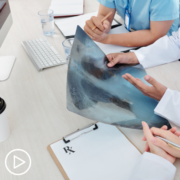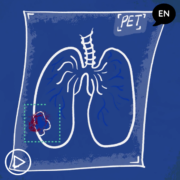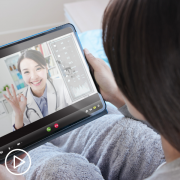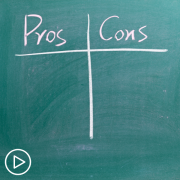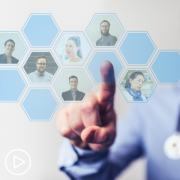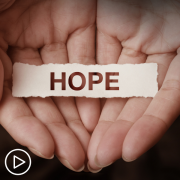“I had a clinical trial in my hip pocket already because I had taken the extra steps. I think it saved my life and got me in the right place,” says empowered patient Bob Lawson who is currently participating in a clinical trial for his non-small cell lung cancer, which recurred a little over three years after his initial cancer diagnosis and treatment. While Bob is in the right place now, his cancer journey has not been an easy one, and he has had to be actively involved in his treatment to ensure the best possible outcome. “It’s so difficult to know what to do, it’s overwhelming. You have to do research on your own,” says Bob, who recommends the Patient Empowerment Network (PEN) website for patients looking for a place to start. “For patients seeking out advocacy, PEN has something that’s very important,” he says referring to the free, online resources provided by PEN. Bob especially likes the PEN-Powered Activity Guides, found here, and says they are powerful tools for patients to find hope and ways to benefit from the new technology and treatments available. His best advice, though, is to do what he’s done all along. “I would say ask questions. A lot of them. You want to ask the right questions and the right questions change,” he says. “If you don’t ask the questions, you’ll never know.”
When he was first diagnosed with lung cancer, Bob says he had no idea what to expect. “At that time, I didn’t know anything about anything,” he says, but he adds that he did know enough to ask questions, and by asking questions, he improved his treatment outcomes. He was diagnosed as the result of some testing that was done for a medical episode that ultimately turned out to be a transient ischemic attack (TIA), which is often referred to as a mini stroke. During the testing, an x-ray revealed a shadow on his left lung, and a fine needle biopsy confirmed that it was cancer.
Bob says when he talked to the surgeon at the hospital, he wasn’t comfortable with the treatment plan, which included a surgery where his ribs would be cracked. He asked the doctor if the invasive surgery was really the only option, and that question got him referred for a second opinion. “Most doctors encourage a second opinion,” he says. “You have to become educated very quickly about what you’re dealing with.”
Bob says the second doctor won his confidence almost immediately. He recommended a minimally invasive lobectomy of the upper left lung and, although his cancer was stage 1B and did not require chemotherapy, the doctor strongly recommended it. The surgery was successful as was his round of chemotherapy. “I did the entire regimen, rang the bell on my way out the door, and they said I was cancer free,” says Bob. That was seven years ago.

Bob Lawson
A few years after being declared cancer free, Bob decided it was time to address the TIA he’d experienced. The cause of the TIA had never been discovered so Bob had a scan of his carotid artery. His artery was clear, but the technologist noticed something on his thyroid. That something turned out to be cancer. It was a nodule classified as malignant neoplasm, and it was unrelated to his lung cancer. Fortunately, the nodule was completely encapsulated in the tissue and was removed. However, the treatment protocol at the time was to completely remove the thyroid. “I didn’t like the sound of that,” says Bob who once again asked a question. “What would you do,” he asked his doctor. Later that night, Bob says his doctor called him. Because of Bob’s question the surgeon dug a little deeper and spoke with the pathologist who said he wouldn’t remove the thyroid. Bob kept his thyroid and, with the assistance of minimal medication, he’s had no problems with his thyroid since. He says five months after he turned down surgery to remove his thyroid, the nodule he had was declassified as cancer.
However, just ten months after the issue with his thyroid, Bob lost his voice and noticed he was coughing a lot. At the same time, he was experiencing significant pain in his right hip. He attributed the hip pain to not getting any younger and the natural consequences from old injuries, but it bothered him enough that he went in for some tests. The tests revealed a little bit of discoloration on the bone that the doctor said he normally wouldn’t worry about, but since Bob had a history of cancer, he wanted to do a scan of the area. “The scan lit up like a Christmas tree,” says Bob. His lung cancer was back, and it had spread to his right femur and hip. Bob had successful radiation treatment on his hip, but he couldn’t have radiation on the tumor in his lung because of its location near the vagus nerve and vital organs. The tumor location also meant surgery was not an option, so his doctor recommended a targeted monoclonal antibody immunotherapy.
Once again, Bob sought a second opinion. “What I had done when they discovered the hip tumor was called the insurance company and got permission to get a second opinion,” he explains. He actually got the opinion of two other oncologists who both agreed with his doctor’s recommended treatment course, but the second doctor, with Johns Hopkins Medicine, went a step further and said, if the treatment stopped working, he had a clinical trial that Bob might want to consider. So, Bob took home the paperwork for the trial and began immunotherapy treatment with his doctor.
It was a relatively new therapy at the time, and, for a while, it worked to reduce the size of the tumor in his lung. Then, he had two months in a row where his scans showed disease progression, and he was taken off the therapy and given a prognosis of 10 to 18 months to live. He asked his doctor what they were going to do, and his doctor said he could do chemotherapy again. “That was the last thing on earth I wanted to do,” says Bob, who asked his doctor about a clinical trial. The doctor agreed that a trial was probably the best course of action for Bob, but he didn’t have any to recommend.
That’s when Bob pulled the Johns Hopkins clinical trial out of his hip pocket. He’s been having infusions every month for the past 17 months, and he’s really happy with the results. “The tumor is steady or reducing all the time, which is great, obviously,” he says.
Bob remains vigilant about his healthcare and continues to pay attention to what other treatments might be available to him should this trial stop working. He continues to research other trials, sometimes reviewing as many as 20 in a week. “Most people just trust the doctor, and that’s the wrong approach,” he says. “Get a second, third, and fourth opinion, and have something ready to go in case what you’re doing doesn’t work.” Bob has learned that approach through experience, but he hopes his story will help make it easier for others. “How can I best support someone who’s like me,” he often asks himself. “I think that’s something I’d like to do,” he says.
Patients who want to ask questions like Bob did, but aren’t sure what the right questions are, can start here with the PEN downloadable office visit planners available for free at powerfulpatients.org.

